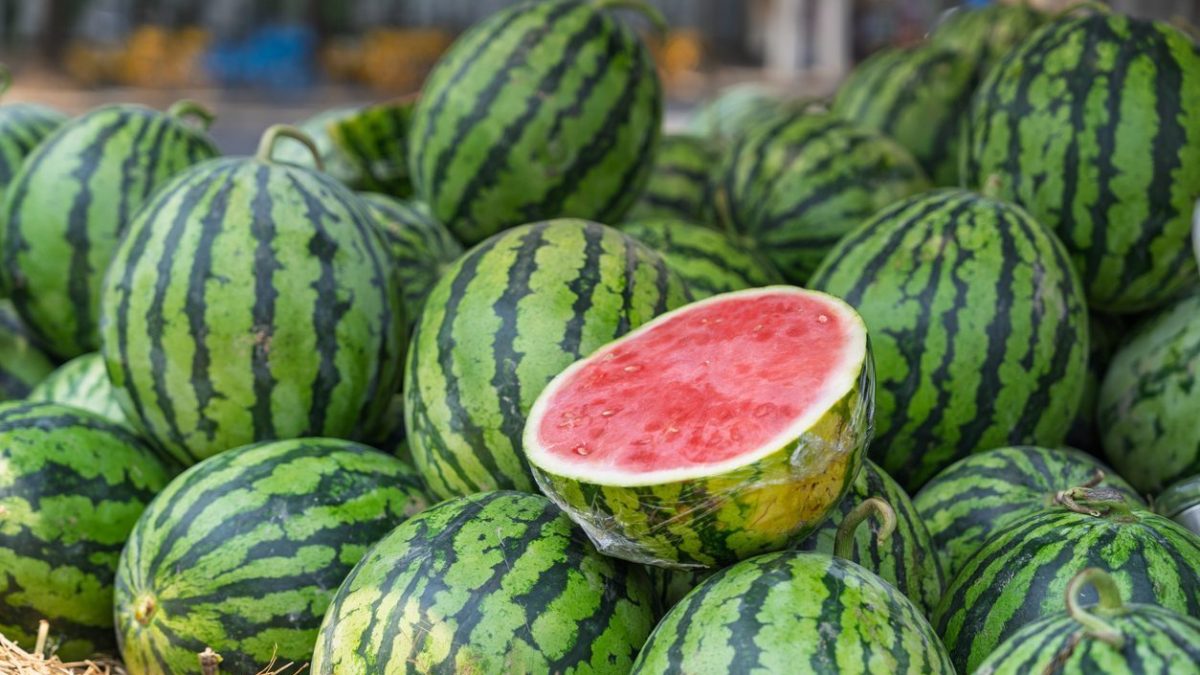
Washing fruits and vegetables is a basic rule of food hygiene, yet many products end up directly on your plate—or worse, in your mouth—without even being rinsed. From squeezed lemons to unpeeled cucumbers, avocados, or melon rinds, there are many "unsuspecting" foods that we never wash… but we should.
The Problem: Invisible Contamination
Even when the part being eaten appears protected (e.g., fruit with a tough peel), the risk of cross-contamination is real: cutting a food with a dirty or contaminated peel can transfer bacteria, pesticides, and soil to the edible part. An FDA investigation showed that Listeria monocytogenes has been found on the peel of melons and watermelons. Once cut, the bacteria enters the flesh, causing food poisoning outbreaks.
Scientific evidence confirms that washing fruits and vegetables is essential for food safety, even when it comes to products with inedible peels like melons, avocados, or citrus fruits. According to the FDA, these foods can carry pathogenic bacteria on their surfaces, and when cut, the microorganisms can transfer to the edible inner part.
EFSA also reiterates that contamination can occur at any stage of the supply chain: from cultivation to transportation to sale. This also applies to products labeled as "pre-washed" or "ready-to-eat."
Studies published in scientific journals such as the Journal of Food Protection demonstrate that a simple wash under running water can reduce the presence of bacteria by up to 99%.
Another study, published in the Journal of Agricultural and Food Chemistry, found that soaking fruits and vegetables in water and baking soda for 10–15 minutes is among the most effective methods for removing pesticide residues. In short, washing fruits and vegetables thoroughly is a simple but essential step to protect yourself from invisible contamination.
The "Unsuspecting" Produce You Should Be Washing
1. Lemons, Oranges, Citrus Fruits

Squeezed directly into tea, grated, or used to garnish dishes—but rarely washed. Yet the peels can contain pesticides and bacteria from contact with hands, boxes, and surfaces. Wash them thoroughly with water and baking soda, especially if you also use the peel.
2. Avocado

The peel isn't eaten, so it's thought to be "protected." But when you cut it, the knife pierces the peel, carrying bacteria into the pulp. It's best to wash it under running water and dry it before opening it.
3. Melons and Watermelons

The rough peel traps bacteria and dirt, but when you slice it without washing it, pathogens pass directly to the pulp. In this case, you can wash and scrub the surface thoroughly with a kitchen brush.
4. Cucumbers

Many people eat them with the peel, but they don't always wash them well: the surface can contain pesticide residues and environmental microbes. It's always best to wash them, even if you peel them.
5. Berries

They are delicate and often eaten immediately, but they are among the fruits most contaminated by pesticides and microorganisms. What to do: Wash them gently under cold water before eating. Avoid soaking them for a long time to avoid damaging them.
6. Ready-To-Eat Bagged Salads

Many people put them directly on the plate, but even if already washed, they can contain resistant bacteria. A study published in Food Control (2022) found the presence of E. coli and Salmonella in some pre-washed salad packages, especially if stored improperly. Rinse them under running water, especially if they aren't consumed immediately after opening.
7. Fresh Olives, Figs, Dates

Often bought off the shelf or packaged, they're thought to be ready to eat: but they may contain processing residues, external sugars, and microorganisms. What to do: A quick rinse doesn't compromise the flavor, but it improves safety.
;Resize,width=767;)
